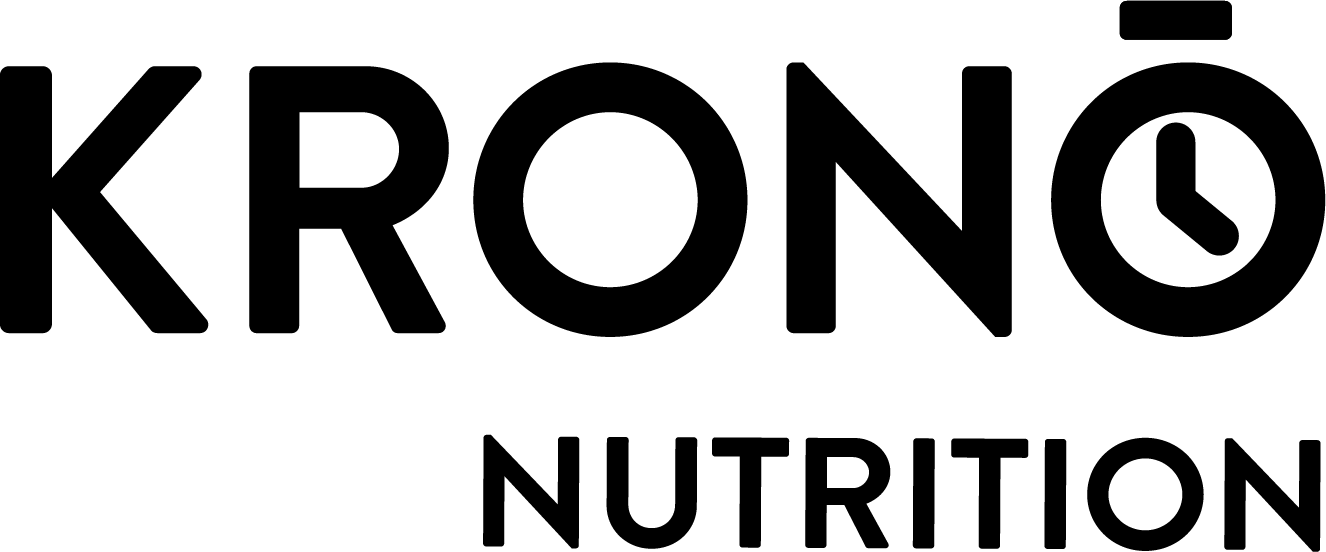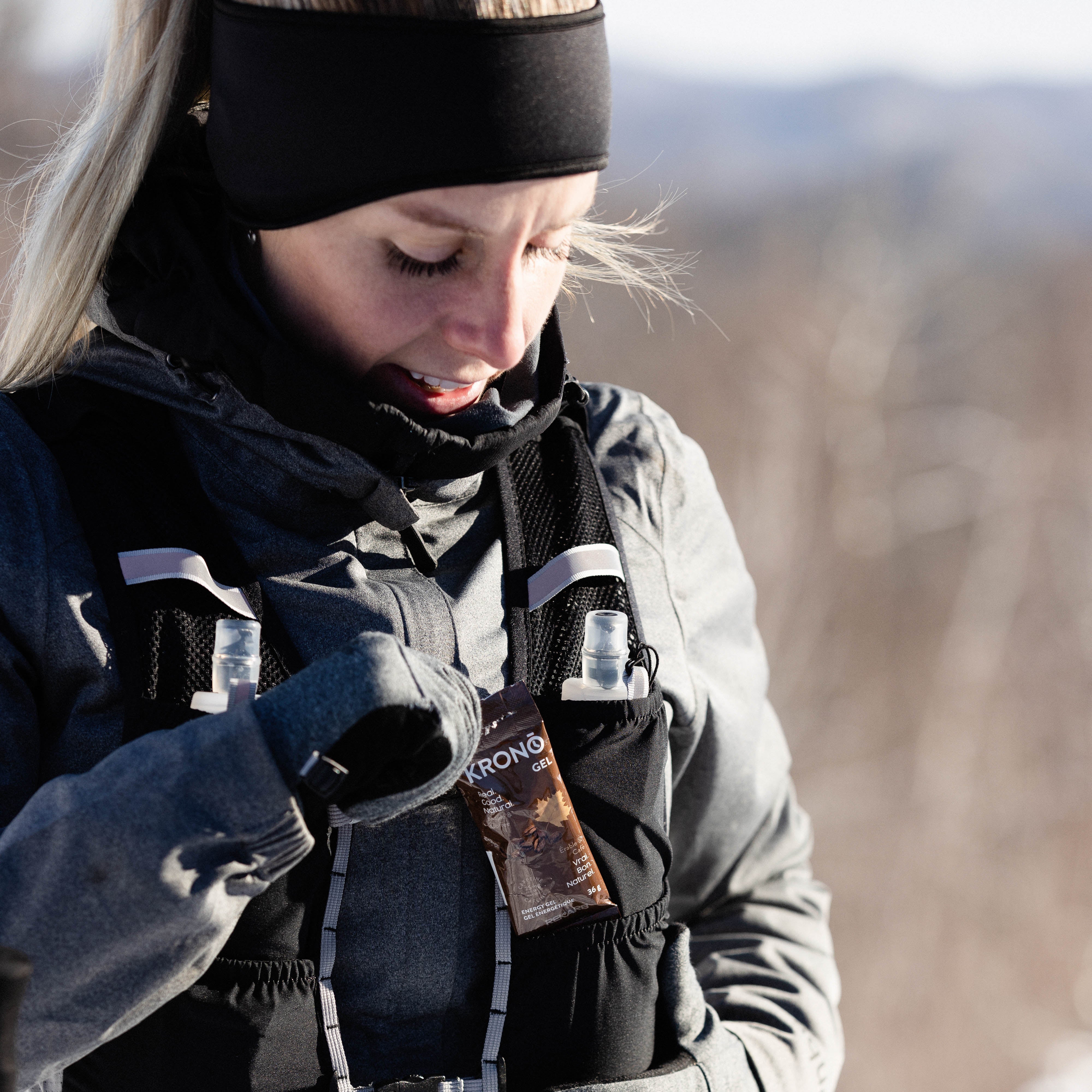When thinking about sports nutrition, caffeine may not be the first thing that comes to mind. However, caffeine is the most widely consumed psychoactive substance worldwide, and many athletes use it both in their daily lives and during competitions.
For years, studies have shown that caffeine enhances performance, benefiting endurance efforts like triathlons, as well as power, strength, and explosiveness in athletic performance.
The Performance Benefits of Caffeine
1. Stimulation and Reduced Fatigue Perception
Caffeine interacts with adenosine receptors (A1 & A2), reducing the influence of the parasympathetic nervous system (which promotes relaxation and sleep) and increasing neurotransmitter synthesis, particularly dopamine.
💡 What does this mean for athletes?
✔️ Less perceived fatigue during intense efforts
✔️ Reduced effort perception, allowing you to push harder
✔️ Improved cognitive function, especially when sleep-deprived
2. Improved Muscle Efficiency
Caffeine stimulates calcium pumps in muscles, leading to:
✔️ Stronger muscle contractions
✔️ Increased muscular endurance
3. Enhanced Fat Utilization for Energy
Caffeine helps the body use fat stores as an energy source during exercise.
💡 Why is this important?
✔️ It preserves glycogen stores for when they are most needed—at high intensities.
✔️ This allows longer and faster performance without early fatigue.
4. Faster Glycogen Replenishment
Consuming caffeine—especially coffee, which contains additional compounds like caffeic acid and cafestol—can increase glycogen storage in muscles after exercise.
How to Consume Caffeine for Sports Performance
Most people get their caffeine from coffee, but caffeine content varies depending on:
☕ Brand
☕ Type of beans
☕ Brewing method
💡 Why this matters:
⚠️ Inconsistent caffeine levels make it hard to control intake precisely.
⚠️ Coffee can also cause stomach irritation for some athletes.
🔹 Alternative caffeine sources include:
✔️ Caffeinated gums or pills – Faster absorption than coffee
✔️ Caffeinated gels or chews – Popular among endurance athletes
✔️ Energy drinks – Effective but often high in sugar and additives
💡 Pro tip: Caffeinated gums absorb quickly through the tongue, making them a better option than caffeine pills for pre-race consumption.
Caffeine in Krono Nutrition Products
At Krono Nutrition, we offer two caffeinated energy gels:
⚡ Krono Citrus Energy Gel → 50mg of caffeine
☕ Krono Maple & Coffee Energy Gel → 25mg of caffeine
These gels not only provide energy from carbohydrates but also give you an extra performance boost from caffeine.
🔹 Other Krono products with caffeine:
🍫 Chocolate & Espresso Energy Bars – 25mg of caffeine per bar
Caffeine Content in Common Foods and Drinks
| Product | Caffeine Content |
|---|---|
| Decaf Coffee (250ml) | 3mg |
| Chocolate Milk (250ml) | 5mg |
| Milk Chocolate (30g) | 5mg |
| Dark Chocolate (30g) | 25mg |
| Soft Drink (355ml) | 35mg |
| Espresso (30-50ml) | 30-50mg |
| Tea (150ml) | 60mg |
| Energy Drink (Red Bull, 250ml) | 80mg |
| Filter Coffee (150ml) | 115mg |
Potential Downsides of Caffeine
While caffeine has many benefits, it’s important to use it wisely to avoid unwanted side effects.
1. Sleep Disruption
⚠️ Consuming caffeine too late in the day (especially in the afternoon) can reduce sleep quality and slow recovery.
💡 Did you know?
Even if you drink coffee at 2:00 PM, caffeine can still affect your sleep at night.
2. Increased Anxiety
⚠️ Caffeine can heighten anxiety levels, which may be problematic before a major competition when stress levels are already high.
3. Gastrointestinal Issues
⚠️ Large caffeine doses can cause stomach discomfort—especially if consumed during a race without prior testing in training.
💡 Pro tip: If you’re racing in an Ironman or marathon, never try caffeine on race day without testing it in training first!
Finding the Right Caffeine Dose
Caffeine is a powerful performance booster, but dosage matters:
✔️ Enough caffeine = Performance benefits
❌ Too much caffeine = Risk of palpitations, anxiety, digestive issues
Key Takeaways for Athletes
✔️ Test your caffeine intake during training before race day.
✔️ Find the right amount—enough for benefits, but not so much that it disrupts sleep or digestion.
✔️ Time your caffeine intake carefully to enhance performance without negatively affecting recovery.
With the right strategy and dosage, caffeine can help you perform at your best! 🚀



Share:
Why Hydration Matters Even in Winter
Understanding Training Zones in Endurance Sports